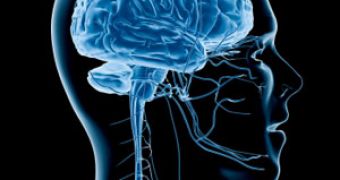Mid-life stress is likely to foster physiological changes in a person's brain and make them more likely to develop dementia, researchers writing in a recent issue of the British Medical Journal argue.
Specifically, events such as divorce, the loss of a family member, trouble at work, financial difficulties and other similar stressors can all affect one's mental health not just on the short, but also on the long run.
The specialists base their claims on data collected while monitoring a total of 800 Swedish women over the course of over 40 years, EurekAlert reports.
Thus, back in 1968, the women were all asked to undergo several neuropsychiatric tests. These tests were repeated in 1974, 1980, 1992, 2000 and 2005.
During this time, 153 (19%) of the women developed dementia. 104 of the volunteers in this group were diagnosed with Alzheimer's disease.
Apart from monitoring these volunteers' mental health, the researchers kept tabs on the stressors that they dealt with throughout the duration of this investigation.
It was thus discovered that, at least in the case of women, mid-life stress upped Alzheimer's disease risk by as much as 21%. What's more, it increased dementia risk by 15%.
The same source tells us that these findings held true even when the specialists took into account other factors (i.e. family history of mental health problems) that have been previously documented to influence a person's risk to develop various mental health issues.
“Stress may cause a number of physiological reactions in the central nervous, endocrine, immune and cardiovascular systems,” the specialists who conducted this investigation theorize.
“Common stressors may have severe and long-standing physiological and psychological consequences. The number of psychosocial stressors measured in middle-aged women was related to distress and incidence of Alzheimer’s disease almost four decades later,” they further detail in their paper in the British Medical Journal.
Although they cannot be sure, the researchers suspect that mid-life stress also affects long-term mental health in men.

 14 DAY TRIAL //
14 DAY TRIAL //